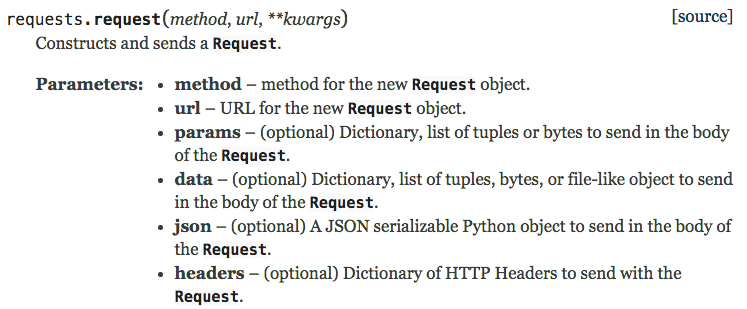
如果你需要使用進階的 HTTP 用法,例如 Basic Authentication 或 OAuth,你必須要用 computation 資料來源。
Step1: 撰寫自訂的 Dockerfile 檔案
你可以透過這個檔案配置 script 的執行環境,Oraclize 會監聽最後一行的執行結果,回傳至 Oraclize 伺服器。
FROM frolvlad/alpine-python3
MAINTAINER Oraclize "info@oraclize.it"
COPY url-requests.py /
RUN pip3 install requests
CMD python ./url-requests.py
Step2: 撰寫客製的 script
url-requests.py 檔案
!/usr/bin/python
import sys
import ast
import requests
import os
# 將 ARG 環境變數存入 arg 陣列
arg = [os.environ['ARG0'], os.environ['ARG1']]
# parse 3rd arg into kwargs if available
if 'ARG2' in os.environ: kwargs = ast.literal_eval(os.environ['ARG2'])
else: kwargs = {}
# 發送 request
req = requests.request(arg[0], arg[1], **kwargs)
# print(json.loads(req.text))
# 將結果印成一行
print(req.text.replace('\n',''))
Python 文件

Step3: 將所有檔案壓縮成一個 archive.zip 檔
把 Dockerfile 跟其他要用的檔案,全部壓縮在一個 archive.zip 檔案裡。

Step4: 上傳 archive.zip 檔案到 IPFS
將壓縮檔上傳至 IPFS 之後,你就會拿到一組 IPFS 的 hash。
ipfs daemon
ipfs add archive.zip
// 輸出訊息:
// added QmRxtL9K2de7v7QBYCCrwcjZHjYmuKggZ8xaqZ6UUWvd1s archive.zip
Step5: 實作 oraclize query 函式
語法
function oraclize_query(string datasource, string[4] args)
oraclizeAPI internal returns (bytes32 id)
這裡的 args 陣列值,最終會轉換成執行環境的 ARG0、ARG1、ARG2、ARG3 變數。
pragma solidity ^0.4.25;
// Step 1: 匯入 API
import "github.com/Arachnid/solidity-stringutils/strings.sol";
import "github.com/oraclize/ethereum-api/oraclizeAPI.sol";
// Step 2: 繼承 usingOraclize 合約
contract ExampleContract is usingOraclize {
using strings for *;
function request(string _access_token) payable {
// Step 3: 呼叫 oraclize_query 函式
string memory _query = "json(QmdKK319Veha83h6AYgQqhx9YRsJ9MJE7y33oCXyZ4MqHE).user.displayName";
string memory _method = "GET";
string memory _url = "https://api.fitbit.com/1/user/-/profile.json";
string memory _kwargs = strConcat(
"{'headers':{ 'content-type': 'json', 'Authorization': 'Bearer ",
_access_token,
"'}}"
);
bytes32 queryId = oraclize_query(
"computation",
[ _query,
_method,
_url,
_kwargs
]
);
}
// Step 4: 實作 `__callback` 函式
function __callback(bytes32 myid, string result) {
if (msg.sender != oraclize_cbAddress()) revert();
// 略
}
}
透過 Oraclize 提供的 HTTP API 先將 Token 加密後,在傳給智能合約。
// javascript
function encryptHeader(token, next) {
const header = `{'headers': {'content-type': 'json', 'Authorization': 'Bearer ${token}'}}`;
encrypt({ "message" : header }, function (data) {
if (data.success) {
next(null, data.result);
} else {
next(new Error("encrypt header fail"));
}
});
}
function encrypt(data, next) {
const init = {
method: 'POST',
body: JSON.stringify(data),
};
fetch('https://api.oraclize.it/v1/utils/encryption/encrypt', init)
.then(processResponse)
.then(next)
.catch(console.error);
}
// 智能合約
function request(string _encryptHeader, string _userId) public payable {
string memory _query
= "json(QmdKK319Veha83h6AYgQqhx9YRsJ9MJE7y33oCXyZ4MqHE).lifetime.total.steps";
string memory _method = "GET";
string memory _url = "https://api.fitbit.com/1/user/-/activities.json";
bytes32 queryId
= oraclize_query("computation", [ _query, _method, _url, _encryptHeader]);
}
